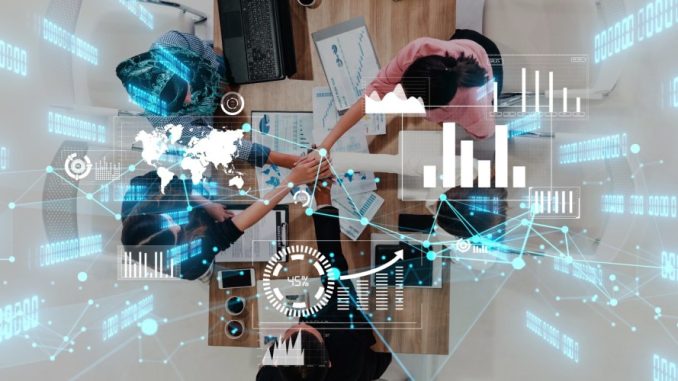
Healthcare: From Reactive to Predictive Care
The healthcare industry has witnessed a paradigm shift due to technological advancements. Traditionally, healthcare was reactive, focusing on treating diseases as they occurred. However, with the advent of technologies like artificial intelligence (AI), machine learning, and big data analytics, the industry is moving towards a predictive care model. AI-powered diagnostic tools, for instance, can analyze vast amounts of medical data to identify patterns and predict potential health issues before they become critical. This shift not only improves patient outcomes but also reduces healthcare costs by preventing diseases rather than treating them.
Telemedicine is another innovation that has revolutionized healthcare. The COVID-19 pandemic accelerated the adoption of telehealth services, allowing patients to consult with healthcare providers remotely. This has made healthcare more accessible, particularly for those in remote or underserved areas. Furthermore, wearable devices and health monitoring apps enable individuals to track their health metrics in real-time, promoting a proactive approach to personal health management.
Finance: The Digital Revolution
The financial industry has been at the forefront of technological innovation, with digital transformation redefining how financial services are delivered. Fintech, or financial technology, has disrupted traditional banking models, making financial services more accessible, efficient, and secure. Mobile banking, peer-to-peer lending, and digital wallets are just a few examples of how technology has transformed the way consumers interact with financial institutions.
Blockchain technology, in particular, is revolutionizing the finance sector by providing a decentralized and secure method of conducting transactions. It has the potential to eliminate intermediaries, reduce transaction costs, and increase transparency. Cryptocurrencies, which are based on blockchain technology, have introduced a new asset class and are challenging the traditional monetary system.
Artificial intelligence and machine learning are also being leveraged in finance to enhance decision-making processes. These technologies are used in algorithmic trading, credit scoring, and fraud detection, enabling financial institutions to operate more efficiently and with greater accuracy.
Education: Personalizing the Learning Experience
The education sector is undergoing a significant transformation driven by technology. Traditional education models, which often follow a one-size-fits-all approach, are being replaced by personalized learning experiences tailored to individual needs and preferences. Edtech, or educational technology, is playing a crucial role in this shift.
Learning management systems (LMS) and online education platforms have made learning more accessible, flexible, and interactive. These platforms allow students to learn at their own pace and from anywhere in the world. AI-driven adaptive learning technologies can assess a student’s strengths and weaknesses and adjust the curriculum accordingly, ensuring a more effective learning experience.
Virtual and augmented reality (VR/AR) are also being integrated into education to create immersive learning environments. These technologies can bring subjects to life, providing students with hands-on experience in a virtual setting. For example, medical students can use VR to simulate surgeries, while history students can take virtual tours of ancient civilizations.
Manufacturing: The Rise of Smart Factories
Manufacturing is another industry that has been transformed by technology, particularly through the adoption of Industry 4.0 principles. The rise of smart factories, where machines and systems are interconnected and communicate with each other, has revolutionized production processes. These factories use the Internet of Things (IoT), AI, and robotics to enhance efficiency, reduce downtime, and improve product quality.
Automation is a key aspect of this transformation. Robots and automated systems are now capable of performing complex tasks with precision and speed, leading to increased productivity and lower production costs. Additionally, predictive maintenance, powered by AI and IoT, allows manufacturers to anticipate equipment failures before they occur, reducing downtime and maintenance costs.
3D printing, or additive manufacturing, is another technological innovation that is changing the manufacturing landscape. It enables the production of complex and customized products on-demand, reducing waste and shortening the time to market. This technology is particularly beneficial for industries such as aerospace, automotive, and healthcare, where precision and customization are critical.
Retail: Enhancing the Customer Experience
The retail industry has also embraced technology to enhance the customer experience and streamline operations. E-commerce has become a dominant force, driven by the convenience of online shopping and the widespread use of mobile devices. Retailers are leveraging AI and data analytics to offer personalized shopping experiences, tailoring recommendations and promotions to individual customer preferences.
In-store technologies, such as augmented reality mirrors and smart shelves, are also transforming the shopping experience. AR mirrors allow customers to try on clothes virtually, while smart shelves can provide real-time inventory information and product recommendations. Additionally, the use of chatbots and AI-powered customer service tools enables retailers to offer 24/7 support, improving customer satisfaction and loyalty.
The concept of omnichannel retailing, where customers can seamlessly transition between online and offline shopping experiences, is another example of how technology is elevating the retail industry. Retailers are using data analytics to gain insights into customer behavior across different channels, enabling them to deliver a consistent and personalized experience regardless of how or where customers choose to shop.
Conclusion: Embracing the Future
The transformative power of technology is undeniable, and its impact is being felt across various industries. By embracing innovation, companies can elevate their operations, enhance customer experiences, and drive growth. However, this requires a commitment to continuous learning and adaptation, as the pace of technological change shows no signs of slowing down.
As we look to the future, it is clear that technology will continue to play a pivotal role in shaping the industries of tomorrow. Whether it’s through the development of new products and services, the optimization of processes, or the creation of new business models, the ability to innovate will be the key to staying competitive in an increasingly digital world.